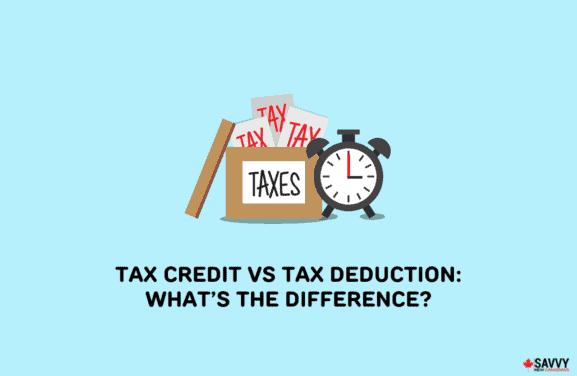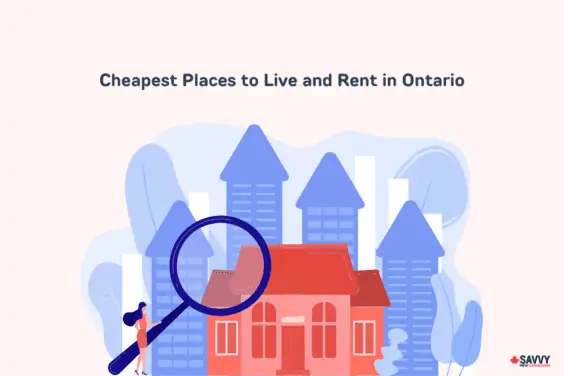This post was sponsored by HSBC Canada; however, all views and opinions are mine.
Are you planning to move to Canada to work or study? If so, it is vital you understand the cost of living here.
While Canada is one of the best countries to work or study in, it is also expensive to live in this part of the planet.
In this post, we will cover the costs of living in Canada and how much you need to earn to live here comfortably.
Key Takeaways
- The average cost of living in Canada is $2,611 per month. The average cost of living for a couple in Toronto is $3,326.50.
- To live comfortably, you need to earn around C$35 an hour or about C$70,000 per year.
- Earning a minimum of $40,000 to $60,000 annually can help you live decently in Canada.
What is the Average Cost of Living in Canada (With Rent)?
Determining the cost of living in Canada involves determining the cost of key necessities such as housing, food and groceries, clothing, utilities, transportation, entertainment, taxes and others.
In Canada, the average cost of living for a single person is $1,330.70 per month without rent. If renting a 1-bedroom apartment in a city centre, the average rate is $1,637.29 monthly, and $1,404.08 per month if outside the city centre.
For a family of four, the average monthly cost of living is $4,757.50, without rent. The average monthly rent for a 3-bedroom apartment is $2,689.83 in the city centre and $2,345.50 outside the city centre.
What is the Average Cost of Living in Canada For a Couple?
The average cost of living in Canada for a couple, specifically in Toronto, is $3,326.50. The cost consists of the following:
- Housing cost – $1,952.75
- Rent (1-bedroom apartment) – $1,680.00Electricity – $104.00
- Phone and Internet – $168.75
- Food Cost – $795.83
- Transportation – $577.92
Cost of Living in Canada By Province
The table below shows the monthly cost of living rates for a couple in Canada by province and city/municipality. Data is as of October 2022.
| Province/ City/ Municipality | Housing* | Food | Car Transportation |
| Alberta | |||
| Calgary | $1,706.33 | $864.83 | $525.33 |
| Edmonton | $1,627.33 | $864.83 | $525.33 |
| British Columbia | |||
| Vancouver | $2,120.50 | $812.67 | $649.00 |
| Manitoba | |||
| Winnipeg | $1,586.83 | $760.50 | $522.67 |
| Ontario | |||
| Ottawa | $1,799.75 | $795.83 | $577.92 |
| Toronto | $1,952.75 | $795.83 | $577.92 |
| Quebec | |||
| Montreal | $1,165.50 | $752.17 | $515.25 |
| Quebec City | $1,178.50 | $752.17 | $515.25 |
| Saskatchewan | |||
| Saskatoon | $1,555.75 | $796.67 | $529.58 |
| Nova Scotia | |||
| Halifax | $1,681.08 | $693.33 | $522.92 |
| New Brunswick | |||
| Moncton | $1,160.00 | $724.00 | $513.40 |
| Newfoundland & Labrador | |||
| St. John’s | $1,322.75 | $720.67 | $577.67 |
Average Cost of Living in Canada Per Month
The average cost of living in Canada is $2,611 per month. There are different components involved in calculating the living costs. These include:
- Housing. This includes rent and is influenced by the type of property:
- Bachelor-style apartments for one person
- Two-bedroom apartments for two people
- Three-bedroom apartments for a small family of 3 or 4
- Single-family detached houses for four or more people
- Food and groceries. These include fruits, vegetables, milk, bread, eggs, etc. These may also include money spent on restaurants.
- Transportation. Transportation costs can cover gas, insurance, maintenance, and public transportation.
- Utilities. These refer to electricity, water, heating, cooling and garbage costs.
The monthly costs of all these items vary and will depend on the province or city where you live.
As a resident or income-earner in Canada, it is crucial for you to know that, as with other newcomers, you will be subject to Canadian income tax on worldwide income (or your income from your previous country of residence plus your income in Canada).
Filing your income tax and benefit return, whether you came to work or study, is crucial. It allows you to receive newcomer benefits and credits even if you just arrived in the country.
Visit the Canadian income tax rates for individuals to find the federal tax rates and provincial and territorial tax rates for 2023.
It is worth noting that Canada does not charge federal tax on the first $15,000 you earn.
Cost of Living in Canada for Students
Studying in Canada is a popular choice for many international students due to the excellent education system, affordable tuition fees, and many internship opportunities.
The average tuition cost of international students studying in Canada ranges from C$20,000 to C$30,000 per year.
When it comes to accommodation, the costs depend on the accommodation type. Homestays cost $500 to $800 per month, while living in a dormitory costs $5,000 to $10,000 per school year. Renting costs range from $500 to $1,500 per month.
The University of Toronto provides estimates of a student’s monthly living expenses in 2023 when living off-campus, specifically in the Greater Toronto Area:
- Housing – $1,100 to $2,700/month
- Food & grocery – $340+/month
- Transportation – $0 to $128.15/month
- Electricity – 65+/month
- Clothing and shoes – $30 to $100/month
- Books and supplies – $500/semester
- Internet – $60 to $115/month
- Phone bill – $50 to $100/month
- Monthly entertainment and other expenses – $150/month
- Tenant’s insurance – $15 to $30/month
- Emergency funds – $500
Cost of Living in Canada vs the US
Overall, Canada is more affordable than the US, but the latter has a higher median income. As of 2021, the median income for households in the US and Canada (after tax) was $70,784 and $68,400, respectively.
As for salary, the average monthly net salary (after tax) in Canada is $4,534 and $4,632 in the US.
Data from Numbeo show the differences between living in Canada vs the US:
| Description | Indices Difference |
| Consumer prices (without rent) | 10.0% higher in the US than in Canada |
| Consumer prices (including rent) | 18.8% higher in the US than in Canada |
| Rent Prices | 38.3% higher in the US than in Canada |
| Restaurant Prices | 17.4% higher in the US than in Canada |
| Groceries Prices | 9.2% higher in the US than in Canada |
| Local Purchasing Power | 17.7% higher in the US than in Canada |
Below are some of the differences in the cost of living (monthly) components between the two countries (in Canadian dollars):
| Item | Canada | US |
| Apartment (1 bedroom) in City Centre | $1,637.30 | $2,262.75 |
| Apartment (3 bedrooms) in City Centre | $2,689.88 | $4,051.32 |
| Grocery Milk (regular, 1 litre); Eggs (regular, 1 dozen) Chicken Fillets (1kg) | $2.75; $4.25; $14.77 | $1.37; $6.02; $15.93 |
| Transportation Monthly Pass (Regular Price) | $100.00 | $91.96 |
| Transportation Gasoline (1 litre) | $1.57 | $1.33 |
| Basic utilities (Electricity, Heating, Cooling, Water, Garbage) | $198.16 | $248.19 |
How Much Do You Need To Earn To Live in Canada?
How much you need to earn to live a comfortable lifestyle in Canada will vary depending on the province where you decide to establish your residence.
For example, it may be easier to live a comfortable lifestyle in Montreal than in Vancouver. Likewise, your choice of living within a city centre instead of the outskirts can spell a vast difference in the cost of living.
Living a sustainable way of life also depends on how much you earn. To live comfortably, you need to earn around C$35 an hour or about C$70,000 per year.
Even so, earning around $40,000 to $60,000 annually can help you live decently in Canada. The key is to choose a province with affordable living costs and offers quality living.
HSBC Canada: Helping Newcomers Access Premium Banking Services
Relocating to Canada to work or study is a major life decision and one that you must fully prepare for financially.
Being a newcomer to a country can be hard enough as it is, so it is important to have a bank that will help you settle in confidently.
With HSBC Canada, moving to Canada and settling down becomes less challenging through the HSBC Newcomers Program.
Whether you came to Canada for a job, to pursue a degree, or to settle down, HSBC makes it easy for you to access premium banking services without needing to provide a Canadian credit history.
The HSBC Newcomers Program is valued at $1,000 and includes a welcome bonus of $500, a $100 cash bonus, and waived monthly banking fees for 12 months when you open an eligible chequing account.
International students can also enjoy several perks with the Newcomers Program from HSBC.
Get up to $150 when you open an HSBC Student chequing account, deposit $1,000, and sign up for online banking within 30 days.
You get an additional $100 by opening a safety deposit box and sending two international foreign exchange wire transfers within six months of opening your account.
Chequing accounts include HSBC Premier, HSBC Advance, Performance Chequing, and Student Chequing. Savings accounts include High Rate Savings Account, Tax-Free Savings Account, and Youth Savings Account.
With HSBC Canada, banking is made easier for newcomers. Plus, you get access to premium worldwide banking services, unlimited day-to-day banking, and easy access to funds.
Related: Newcomer to Canada Benefits
FAQs
It is a manageable salary if you live in a smaller city or town where the cost of living is lower than in major cities like Toronto and Vancouver. While it is considered a modest salary in other areas, the key is to choose an affordable location and live within your means.
Finding a job in Canada can be easy, provided you prepare for it, take proper training, and are flexible. Since you have no Canadian experience, you must familiarize yourself with the country’s recruiting process and work culture. You must be eager to learn, ready to work hard, put in additional effort, and adapt to the required work in a short time.
Toronto homeowners are facing a 58% increase in their cost of living for 2023, with the monthly cost of housing now amounting to $5,282.48, while new homeowners are looking at living costs of $7,133.69 a month. Due to demand outstripping supply, Toronto renters are also facing a 22% rent increase, with a one-bedroom unit now at $2,506 a month. Record immigration, a robust job market, and a highly unaffordable housing market are driving the high demand and steep rent rates.
Based on cost of living figures as of October 2022, British Columbia is the most expensive province in Canada. The cost of living for a couple renting a 2-bedroom apartment in Vancouver reached $3,582.17 per month. House prices and rental rates are also very high, with BC named by Statista as the most expensive province for housing.
Terms and conditions apply. Offers and rates are subject to change without notice. For full offer details, please visit hsbc.ca. HSBC Bank Canada is not responsible for maintaining the content on this site. Please click on the offer links within the article for the most up to date information.
Savvy New Canadians may receive compensation for each successful application that is started through this site.




Respectfully, your numbers are misleading. If I moved to Canada based on the information you’re providing I’d be pissed.
“Even so, earning around $40,000 to $60,000 annually can help you live decently in
Canada. The key is to choose a province with affordable living costs and offers quality living.”
Facts: I live in a small town and my income is at the top of your “live decently” range and I don’t live decently. I struggle to pay my combined monthly expenses for my VERY MODEST life. Aside from food I buy almost nothing, not even clothes. I drive a 12 year old used car. My food budget is WAY below the average Canadians but I haven’t dipped into a foodbank… yet. I NEVER eat out or purchase non-essential products. Every month is a struggle against growing debt.
If you move to Canada you’re obviously going to need to find employment. MOST of that employment is in larger cities and your cost of living is going to exceed your income if you’re only earning between $40 and $60k. If you try to control cost of living by residing in a smaller town your employment options are going to be seriously limited (fast food/service) and your income will skew towards $40k (optimistically). Live in a small town and commute to a city for work? Your fuel costs alone are $6-$7k a year. A vehicle? Even a very used, reasonably reliable 10 year old model is going to cost $10,000. You’ll need to finance it AND your maintenance and repair costs are $3000+ per year.
You’re giving people advice that encourages them to move to Canada based on over-simplified information. You’re also pushing the banking services of a major financial institution. A person moving to Canada who’s confronted with real world costs will quickly be saddled with personal debt repayment (thanks to the same financial institutions) that eats up every spare penny and more.
If you’re going to provide information to potential new-comers at least be honest.
@Greg: First, it is disclosed at the top of the article that it was sponsored by HSBC…they did not contribute to the information in it. Secondly, yes, you can live on the amound specified depending on your location. That said, this content was written a while back, and I agree that with rising inflation, it has become more challenging to live comfortably earning an average income, which as of 2023 is just below $60k.